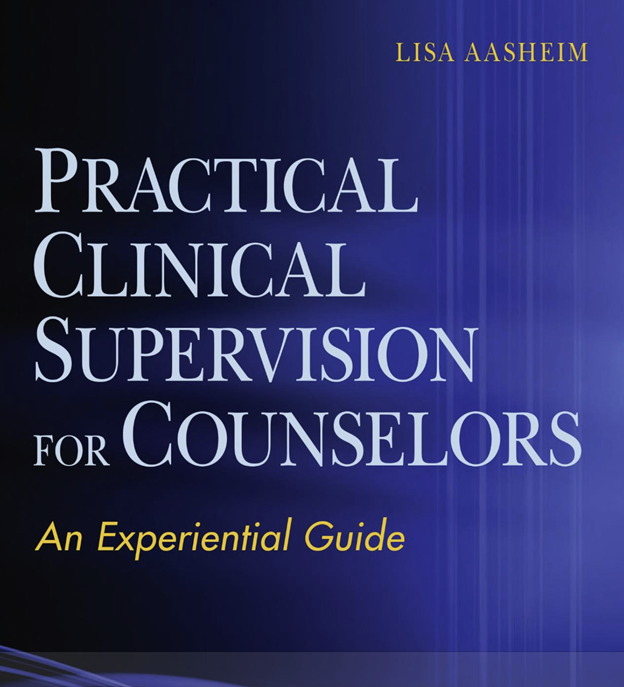Foundations of Clinical Supervision
Lisa Aasheim, PhD
Counselor, Educator, Clinical Supervisor and Dean of Counseling & Wellness
30 Hour CE Course
An introduction or refresher course for those who provide clinical supervision to pre-licensed, licensed, and advanced Psychologists, Marriage & Family Therapists, Counselors, Social Workers.
Live Classes via ZOOM
January23 & 24 and February 6 & 7
Clinical supervision provides the foundation in which helping professionals integrate their training, knowledge, and abilities with their professional practice, identity, and field expectations and standards. The 30-hour course provides training and instruction designed to maximize effectiveness of the supervision experience for both supervisee and supervisor.
Maximally impactful supervision allows a supervisee to meet and exceed their field’s standards of practice while finding meaning, value, and reward in the work. This course guides supervisors into maximally effective practice through an examination of best practices as well as innovative, identity-honoring, and creative modalities intended to align supervision with the unique needs of each supervisee and their practice.
Course Topics
This course addresses topics including:
The intersection of personal and professional identity
The supervisory alliance
Maximizing competence while fostering autonomy
Supervision models & supervisee stages of development
Ethical and legal issues & resolution
Risk management
Documentation and charting
Facilitating social justice and culturally fit practices
Innovative strategies in supervision
Help for the helpers during a time of prolonged, multiple crises
Supervisors will also learn additional risk management tools and facilitative strategies to support supervisees during this time of extended and complex stress that has strained helpers, especially marginalized and underrepresented clinicians, in profound and career-impacting ways.
This course is 30 clock hours and includes 8 hours of ethics training. This course also includes a systems component. It meets the supervision course requirements to supervise pre-licensed Social Workers, pre-licensed Professional Counselor and Marriage & Family Counselor Associates. (Additional qualification requirements to supervise are outlined on your professional licensing board’s website, e.g. supervisors are required to have their clinical license in good standing.)
Continuing education credit is awarded by Lisa Aasheim Ph.D. who is responsible for all aspects of the program. This continuing education activity is not approved by the Association of Social Work Boards (ASWB) or the American Psychological Association (APA). Mentor Research Institute serves as the co-sponsor for this activity.
Course Goals and Learning Objectives
Participants completing this course will:
Understand and be able to describe the intersection of personal and professional identity.
Understand and be able to describe the factors and impact of the supervisory alliance.
Understand and be able to describe documentation and charting requirements.
Understand and be able to discuss ethical and legal issues relevant to supervision.
Understand and be able to describe identity honoring and culturally impactful supervision practices and techniques.
Understand and have developed initial working knowledge of at least one supervision model.
Instructor
Lisa Aasheim, Ph.D., LPC, LMHC, NCC, ACS is an Associate Professor and the Director of Counseling Services for Portland Community College. She is a renowned specialist in Clinical Supervision and is the author of Practical Clinical Supervision for Counselors: An Experiential Guide (Springer Publishing). She specializes in couples and family counseling, addictions counseling, and school counseling, and has written textbook chapters and articles on Clinical Supervision Models and Theories, Motivational Interviewing, Counselor Development, Ethics in the Work Settings, the Therapeutic Alliance, Family Counseling in the Schools, and Addictions in the School, Home, and Workplace. She maintains a profound appreciation for the complexities and challenges that come with dedicating one’s professional life to helping others and is grateful for the opportunity to support those who do this so well.
